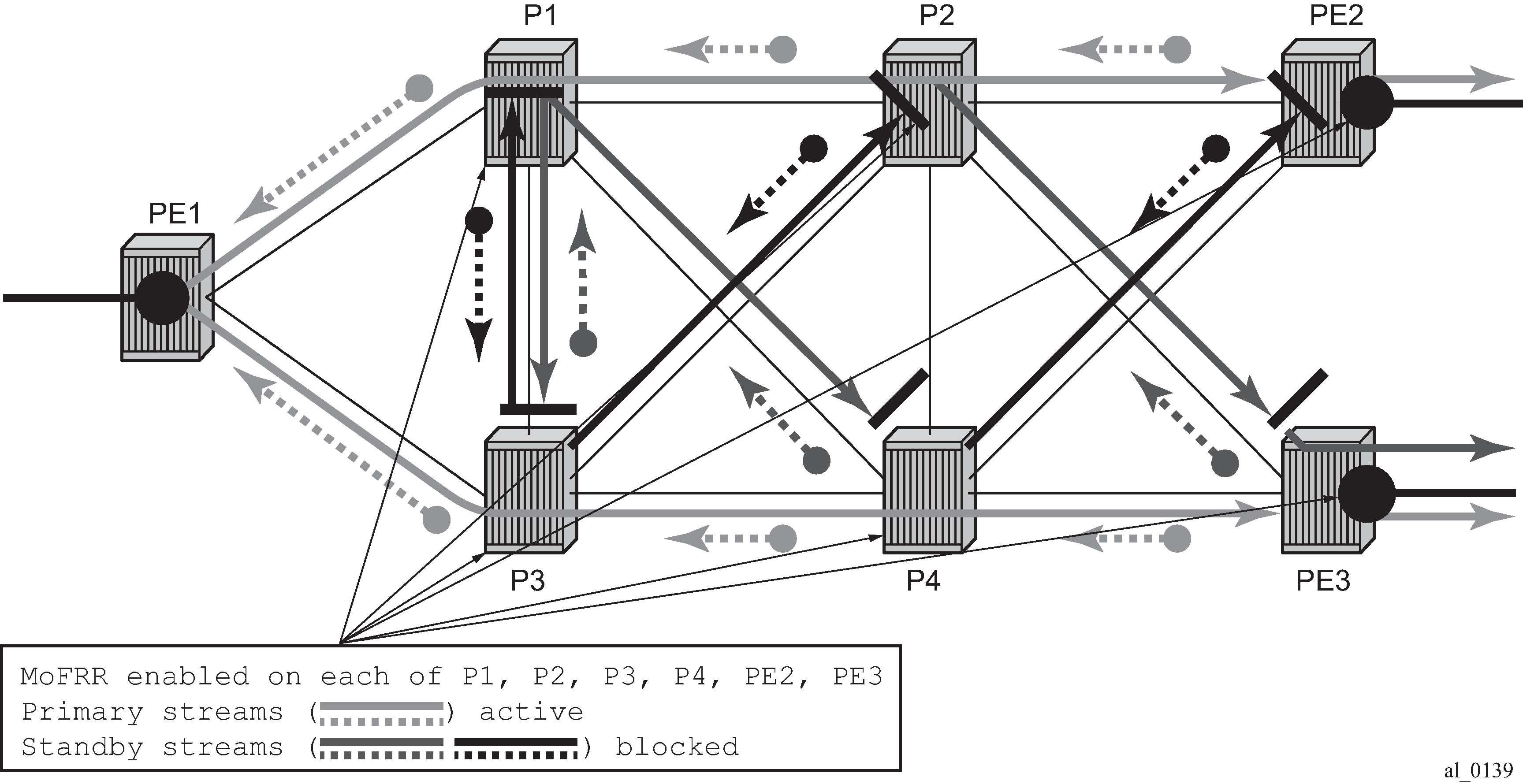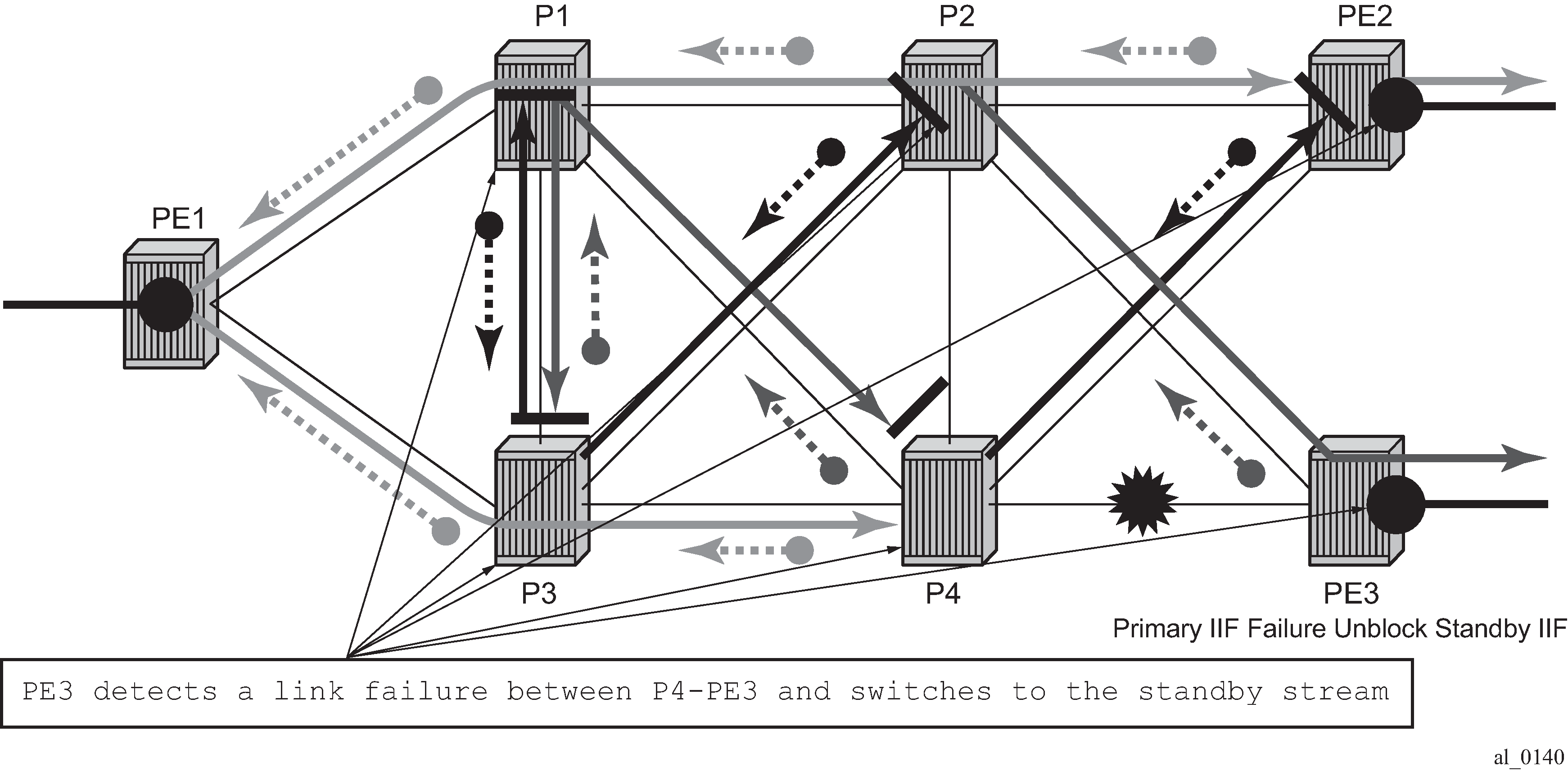With large scale multicast deployments, a link or nodal failure impacts multiple subscribers or a complete region or segment of receivers. This failure interrupts the receiver client experience. Besides the impact on user experience, though multicast client applications may buffer streams for short period of time, the loss of stream data may trigger unicast request for the missing stream data to the source in specific middleware implementations. Those requests can overload the network resources, if a traffic loss persists for a prolonged period.
To minimize service interruption to end-users and protect the network from sudden surge of unicast requests, SR OS implements a fast failover scheme for native IP networks. SR OS Multicast-Only Fast Reroute (MoFRR) implementation is based on RFC 7431, Multicast-Only Fast Reroute, and relies on:
sending a join to a primary and a single standby upstream nodes over disjoined paths
fast failover to a standby stream upon detection of a failure
The functionality relies on failure detection on the primary path to switch to forwarding the traffic from the standby path. The traffic failure can happen with or without physical links or nodes going down. Various mechanisms for link or node failure detections are supported; however, to achieve best performance and resilience, it is recommended to enable MoFRR on every node in the network and use hop-by-hop BFD for fast link failure or data plane failure detection on each upstream link. Without BFD, the PIM adjacency loss or route change could be used to detect traffic failure. Figure 1 and Figure 2 depict MoFRR behavior.


MoFRR functionality supports the following:
IPv4 or IPv6 link or node failure protection in global routing instance
Rosen PIM-SSM with MDT SAFI
active streams and a single standby stream over disjoint ECMP paths
active streams and a single standby stream joins over IS-IS or OSPF Loop-Free Alternate paths
all regular PIM interfaces supporting MoFRR for all multicast streams (tunnel interfaces are ignored)
MoFRR (config>router>pim>multicast-fast-failover or config>router>pim>multicast6-fast-failover) cannot be configured when GTM auto-discovery (config>router>pim>gtm>auto-discovery) is enabled.